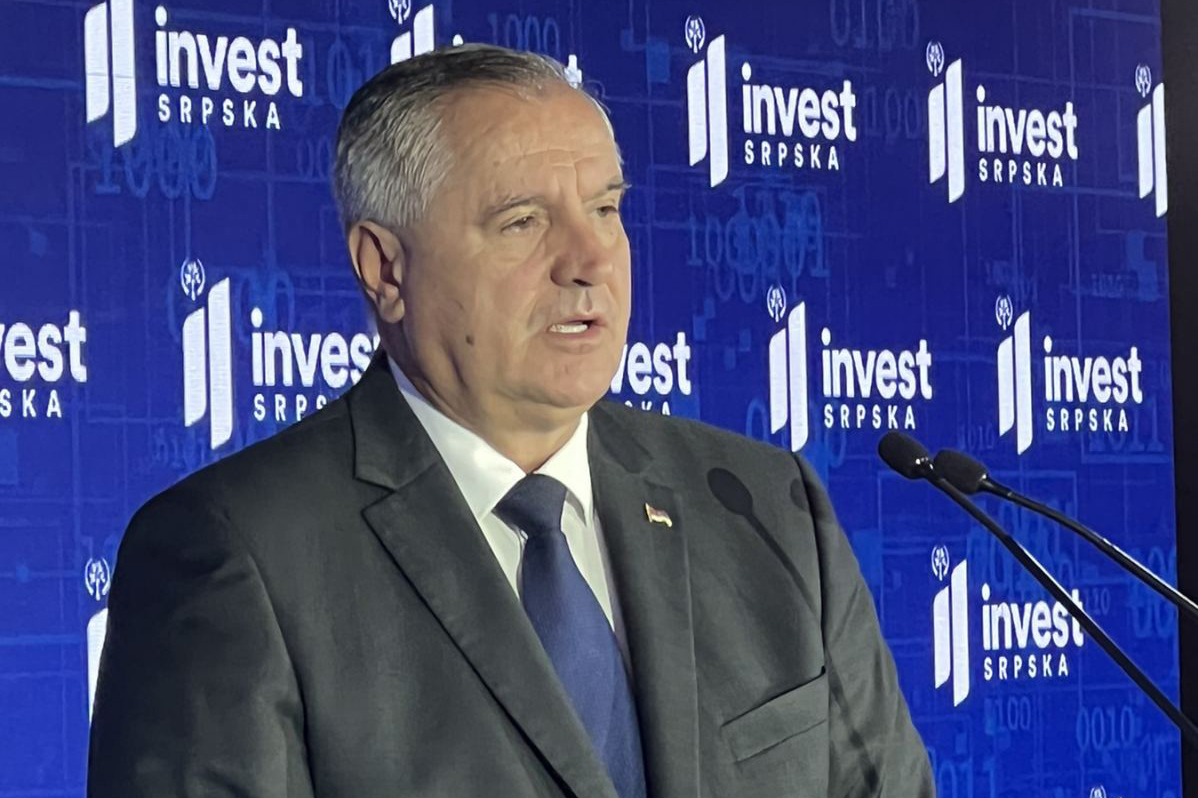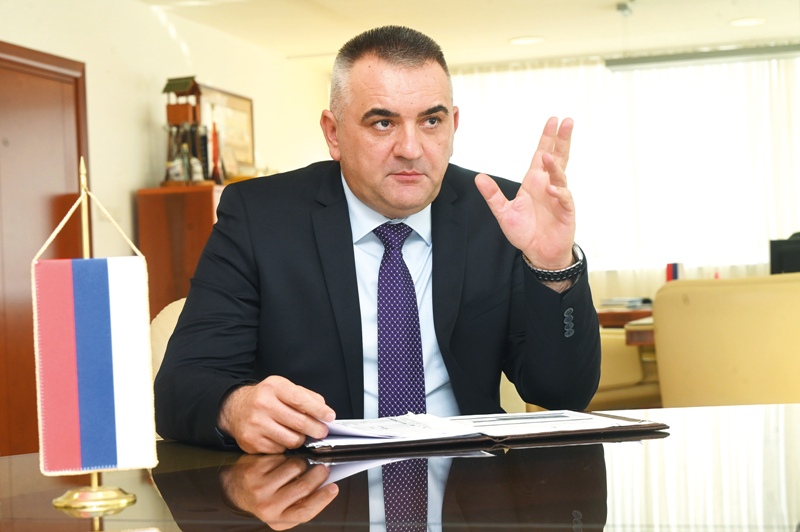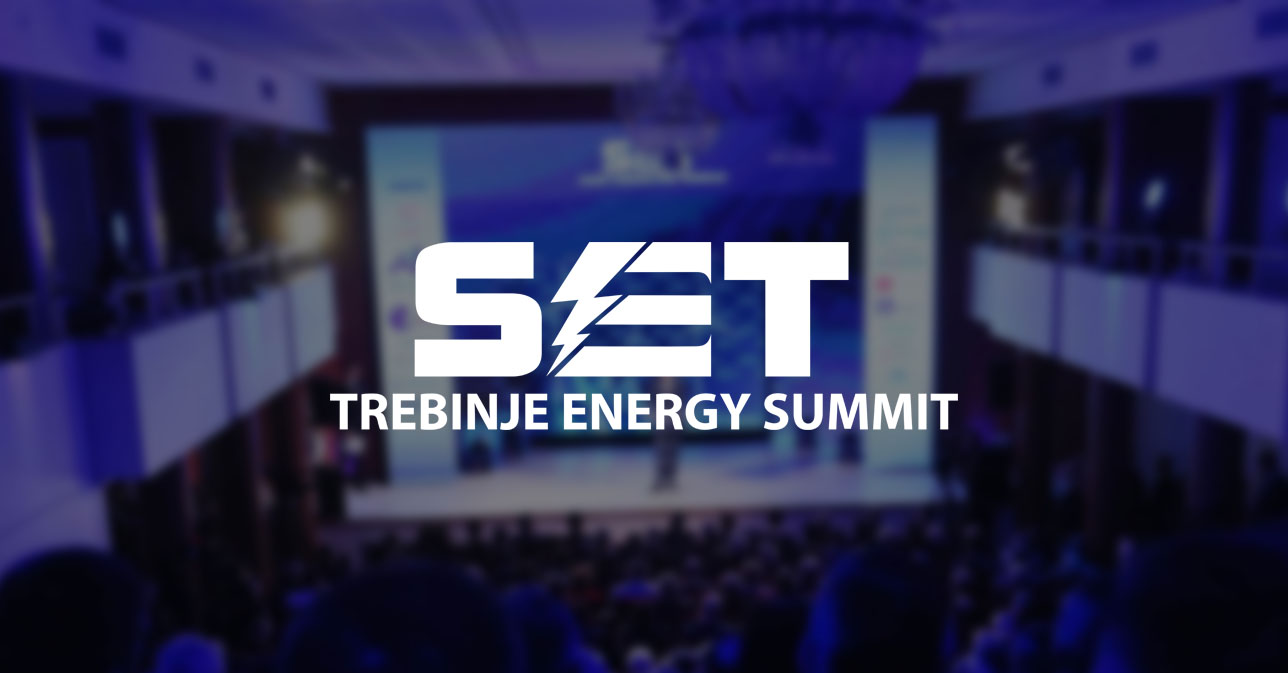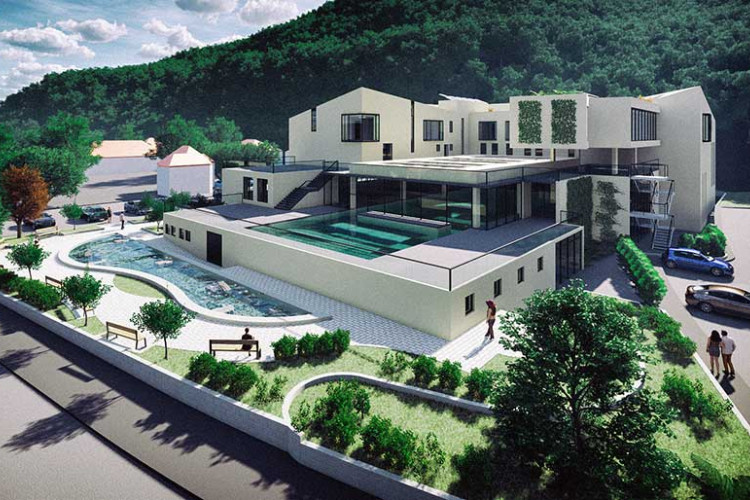Relations between the most powerful political, military, and economic forces have become very complex, and a new geopolitical picture of the world is beginning to form. In such an environment, the Republic of Srpska, as a small and open economy, has developed in recent years. Its future development will also be greatly influenced by the international environment, writes Prof. Dr. Milenko KRAJIŠNIK, President of the Fiscal Council of the Republic of Srpska and Dean of the Faculty of Economics at the University of Banja Luka.
The global economy has been developing under very complex and unstable conditions since the beginning of the 21st century. First, the great global financial crisis of 2008 shook the world’s financial markets and consequently the real economy of almost all countries in the world. Then came numerous restrictions in international trade, of which the most significant are the trade war between the USA and China as the two largest participants in the world market, and sanctions towards Russia, a country with the largest world resources. In 2020, the planet was hit by a pandemic caused by a virus, unprecedented in recent history, which plunged the entire world into recession through broken supply chains and a significant reduction in investment activity. After a year of recovery, a new crisis began with events in Ukraine, tensions around Taiwan, and crises in the Middle East. Relations between the most powerful political, military, and economic forces have become very complex and a new geopolitical picture of the world is beginning to form. In such an environment, the Republic of Srpska, as a small and open economy, has developed in recent years. Its future development will also be greatly influenced by the international environment. The Republic of Srpska has achieved an average real growth rate of 3.6 percent over the last ten years, with a negative rate of -2.5 percent in 2021. In 2022, the real growth rate was 3.5 percent, which is at the level of the European Union countries and slightly higher than comparable countries in the Region (Serbia, Macedonia, etc.). This, of course, is not enough for the level of development our country needs. The real GDP growth of the Republic of Srpska of 3.5 percent at the end of last year indicates that the Republic of Srpska, in terms of economic activity, has overcome the first year of the current global economic crisis within the European framework. But the future is challenging and uncertain. Throughout this period, financial and fiscal stability has been preserved as an essential prerequisite for future development.
How will it develop and what does future development depend on?
Extensive analyses conducted in 25 of the most successful countries in the world in terms of economic growth have shown that, in addition to political stability, which is the general framework for future development, there are four key factors on which economic growth depends: efficient use of available resources, technological changes and innovations, integration into global economic flows, and fiscal stability.
Political stability affects all other factors through investments, as the most important factor of development. Investors are very cautious and restrained in conditions of political instability. The Republic of Srpska has very favorable conditions for doing business in terms of tax burdens. The Republic of Srpska, along with Serbia, has the lowest rates of corporate tax and income tax (Republic of Srpska and Serbia 10 percent and 10 percent, Croatia 10-18 percent and 20-30 percent, Slovenia 19 and 16-50 percent, Montenegro 9-15 and 9-11 percent). The tax wedge, which reflects the tax burden on labor, i.e., the share of taxes and contributions in gross wages, is the lowest compared to the surrounding and EU countries (Republic of Srpska 34.1 percent, Serbia 38.1 percent, Croatia 39.2 percent, Federation of BiH 42.6 percent). However, it should be borne in mind that political and fiscal stability are much more important than the level of tax burden. Stable countries have much larger investments than countries with low tax rates but do not have other good conditions, primarily political stability. Political stability also affects aggregate demand, price stability, and fiscal stability. When it comes to efficient use of resources, it depends on the rationality of use, the type of available resources, and their compatibility with world development trends. The main characteristics of world development in the 21st century will be the demand for energy, especially electricity from renewable sources, then the security of providing drinking water and food, especially from organic production, ecological protection of the planet, as well as further digitalization and information society. Does the Republic of Srpska have resources that are compatible with these world development trends? It does. The electro-energy potential in the form of renewable sources (hydro potential, solar energy, and wind energy) is very significant and in conditions of increased world demand for electricity can be a serious development potential of the country.
Ecologically preserved and unpolluted potentials of land, water, forests, and air are also present. The structure of investments directed towards the use of these resources in economic branches such as agriculture, wood processing, food industry, tourism, and similar is imposed as a priority. For the economy of a small country like the Republic of Srpska to successfully integrate into global flows, it must be competitive, and that competitiveness should be based on technological progress and innovations. The modern economy is a knowledge economy. Therefore, investment in science and education is an important segment of future development. The Republic of Srpska has a large number of young talented people who are ready to face the challenges of modern times. Many of them have proven themselves in global frameworks. Computerization and the development of networks allow their engagement regardless of where they are located.
Of course, it should be kept in mind that future development will also be under the strong influence of the international environment. Geopolitical conditions in the world today bring many uncertainties. But the new geopolitical picture of a bipolar world can be more favorable for the development of countries such as the Republic of Srpska.
In international economic relations, primarily in the field of foreign trade and investment, it is necessary to take advantage of the opportunities provided by large markets, fast-growing economies, and technological progress in them. This refers primarily to the Chinese and Russian markets. Continuing and improving economic cooperation with the main foreign trade partners, which are the countries of the Western Balkans and the European Union, is necessary. But the diversification of foreign trade and investments with BRICS countries would provide greater security and enhance the development potential of the Republic of Srpska. In addition to investments in the energy sector, propulsive economic branches, and education, an important segment is investment in infrastructure. Large infrastructure projects will be an additional impetus for investment and greater economic efficiency. An additional, and not small, effect on economic growth can be given by an improved structure of sources of financing important projects of national importance. In this regard, the internalization of public debt is an important process. If the financing of development projects of public interest is financed by issuing bonds whose buyers will be residents, i.e., citizens and companies from the Republic of Srpska, such a financing method will have a multiplicative effect on economic growth. Diversification of sources of financing investments provides additional financial security, and the internalization of public debt positively affects the sovereignty of the country and improves its sustainability. When all this is taken into account, it can be said that in a stable international environment, the Republic of Srpska with its resources has a good perspective for successful economic development. In unstable international conditions, like now, the economic growth of the Republic of Srpska will be significantly slowed down.
However, in all circumstances, it should be kept in mind that economic development is not an end in itself. The goal of the development of a country is not only for the economy to be profitable, but also to have higher employment, higher wages, better education, better health care, greater social security, i.e., a higher standard of living for the population.”









